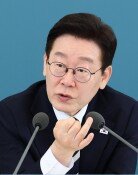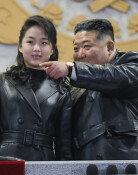[Diplomatic News] Houses for U.S., Russian, Japanese and Chinese Diplomats
[Diplomatic News] Houses for U.S., Russian, Japanese and Chinese Diplomats
Posted September. 09, 2005 07:43,
Some 150 U.S. diplomats in Korea are living together in diplomatic quarters within the U.S. Forces Korea (USFK) compound in Yongsan. Only two U.S. diplomats, the ambassador and deputy ambassador, live in the ambassadorial residence in Jeongdong, Jung-gu and the private residence in Pyeongchang-dong, Jongno-gu, respectively.
In the past, there were residential areas called Compound 1 and Compound 2 near the embassy, but all of them were relocated to Yongsan in summer of 2003. Residences in Yongsan are single-family houses with parking lots.
Living all together has some advantages, but some disadvantages also exist because everyones privacy is exposed, said an U.S. Embassy official.
The United States initially planned to build an embassy building with two stories underground and 15 stories above ground, and an eight-story apartment for employees on the former site of Gyeonggi Girls High School by 2008. The project has been at a standstill since 2002, however, when it turned out that the candidate site was where Deoksu Palace had previously been located. Construction has been held up by strong public opinion that the cultural heritage site should be preserved.
Russian diplomats in Korea live in an employee apartment building within the Russian Embassy in Jeongdong.
We are enjoying a safe and comfortable stay. Russian schools covering kindergarten through high school courses are located within the embassy. Medical staff and chefs are also residing here, said a Russian Embassy official. In addition, the Seoul City Hall is just a short walk away, so we have a lot of conveniences nearby and we are happy about it.
Located on the former site of the Baijae Institute, construction on the Russian Embassy building started in January 2000. The building received approval in 2001, and its interior finishing work was completed in one year. It consists of a six-story embassy office building and an employee residence with one story underground and 12 stories above ground. The total floor space of the structure is approximately 7,940 square meters (about 2,402 pyeong).
Japan and China have formed Little Japan and Little China communities in Ichon-dong, Yongsan-gu and Daehyun-dong, Seodaemun-gu, respectively.
The Chinese Embassy uniformly provides employees with mid-sized apartments leased on a deposit basis, while Japanese diplomats get individual houses in regions they want to live in within a price limit set by the Japanese government.
Half the Japanese Embassy staff, or some 30 persons, is living in apartments in Ichon-dong, with the rest residing in Mapo, Seodaemun, Dokripmun and other areas.
The reason why a relatively large number of employees are living in Ichon-dong is that buses going to the Japanese School in Gaepo-dong, Gangnam-gu are available there. School parents raised enough money amongst themselves to charter the bus service.
Public Relations Officer Takane Katsumasa of the Japanese Embassys Public Relations and Culture Institute (PRCI), a resident of Ichon-dong, said, Other than diplomats, many resident workers from Japanese trading companies are also living here. Families find it comfortable to live here, as simple Japanese expressions are easily understood in nearby stores.
Over 60 employees of the Chinese Embassy are living in one apartment complex in Daehyun-dong, located near Ewha Womans University.
First of all, transportation to the embassy is very convenient. On weekends or days off, it is also fun to drop by restaurants or clothing stores near Ewha Womans University, said one embassy official.
The Chinese Embassy leased the apartments for around 120-130 million won. They seem to have chosen that neighborhood because housing prices are reasonable compared to other downtown residential areas, and it is not far from the Incheon International Airport, said a real estate agent in Daehyun-dong.
Yi-Young Cho lycho@donga.com







